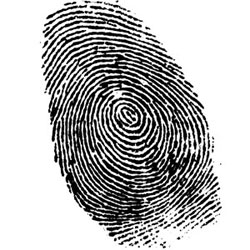 By Nathan A. Hacker
By Nathan A. Hacker
Divorce lawyers frequently receive calls or emails from clients stating, “I’ve got some divorce evidence about…”
What many people don’t understand is that there are series of rules that have to be followed in order to put something into evidence. These rules very from state to state, and many times the variations are not in the wording, but rather in the interpretation.
An understanding of these evidentiary rules can help fathers talk to their divorce lawyers and be in a better position to assist their attorney and stay active in the case.
A common example is the statement by a child about what they experienced at the other parent’s house during parenting time. The following is an example of the checklist that is passing through your attorney’s head as you are explaining what you believe to be evidence:
a.) Is it relevant?
- Yes. Proceed to b)
- No. Stop. It’s not going before the judge.
b.) Is it generally admissible?
- Yes. Proceed to d)
- No. Is there an exception? If yes, go to c)
c.) What are the requirements of the exception? Do I have (or can I get) the additional evidence or testimony to fit the exception?
- No. Stop. It’s not going before the judge.
- Yes. Continue to d)
d) What is foundation for the evidence?
- Do I need witnesses to submit the evidence?
- Do I have the right witnesses for the evidence subpoenaed?
- Can I lay the foundation by affidavit?
Evidence is generically defined as “something that makes another fact more or less likely to be.” What this means is that “something” can be anything: a letter, a photo, a report, testimony, etc. The list is endless and the rules of evidence contemplate that fact.
So, if your 6-year-old son comes home and says, “When I was at Mommy’s I saw lots of money” that’s evidence of something. The other half of the definition “that makes another fact more or less likely to be” is the relevance of that statement.
Given that same statement above, it could depend on something as simple as whether the court was hearing a case on child custody or child support. If it is a child custody dispute, it is likely irrelevant whether mom is rich or not. However, if it is a child support dispute, there could be some value in the evidence.
After you have cleared the hurdle of having something relevant to present to the court, you must now clear the hurdle of admissibility. Just because you have evidence of something that makes a fact more or less likely, doesn’t mean the judge is actually going to get to see, hear, smell or touch that same evidence.
Given the same statement by your child, you must now also clear the hearsay objection. Hearsay is recognized as “an out of court statement submitted for the truth of the matter asserted.”
That means that your child telling you what he saw may not make it before a judge, even though it could be evidence that mom is wealthy. And, as I am sure you are aware, there are multiple exceptions to each rule. Depending on the state you are in, these exceptions will vary.
In order to take advantage of one of these exceptions, a proper foundation must be laid in the divorce evidence. In other words, you have to prove that the statement (written or spoken) falls factually into a categorical exception to the rule.
For spoken hearsay, “present sense impression” and “excited utterance” are two of the more commonly used exceptions. For the sake of this divorce article we’ll assume that your child’s statement falls into the excited utterance category, i.e. shortly after seeing the money at his mother’s house and recognizing generally the value of money and that having lots of it meant something, which caused him to be excited and shortly thereafter tell you, “When I was at Mommy’s I saw lots of money.”
Read Related Articles:
So, now that you have fit the statement into an exception, there is one more issue to consider: weight. In other words “how much weight should be given to the evidence?”
Just because your son came home and said, “When I was at Mommy’s I saw lots of money” means nothing more than he saw what a 6-year-old considers to be a large sum of money.
There is nothing there that says he saw 500 $100 bills or if he saw 500 $1 bills. Each may have its own connotation, which would need to be explored further in testimony. The point is the court would be unlikely to grant much weight to the statement alone.
So, when the client calls and states, “they have evidence of something” there is a laundry list of issues that should run through a divorce lawyer’s mind. Here are some things to keep in mind if you are gathering evidence for your case. Remember, your state will have specific rules regarding the evidence:
1.) Every piece of evidence has to have a foundation. If it is testimonial evidence then there must be personal knowledge. If it is physical divorce evidence then the attorney must establish a nexus between the issue(s) being litigated and the object. If it is someone else’s statement, then there needs to be a hearsay exception.
2.) Expert testimony is admissible on two grounds: a) that the person is actually an expert and b) that the testimony can assist the trier of fact.
3.) In most states you don’t have to be the photographer to get a picture into evidence. It just has to reflect something you have seen yourself in an honest manner. That is to say I would recognize a picture of Niagara Falls because I have been there many times and could testify that a picture of a big water fall is or is not in fact a picture of Niagara Falls.
4.) Offers to settle are not admissible as evidence in court. So if your ex says, “You’re right, but if you drop the contempt I’ll still pay your attorney’s fees,” then you cannot say in court, “she said I was right and that she’ll pay my attorney’s fees.”
5.) It is better to send your lawyer everything and let them sort out the admissibility issues. Just don’t expect that everything you send to your lawyer will land in front of the judge for consideration.
 To set up an appointment with a Cordell & Cordell mens divorce attorney, including Indianapolis Divorce Lawyer Nathan A. Hacker, please contact Cordell & Cordell.
To set up an appointment with a Cordell & Cordell mens divorce attorney, including Indianapolis Divorce Lawyer Nathan A. Hacker, please contact Cordell & Cordell.

